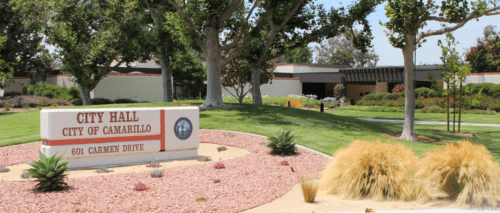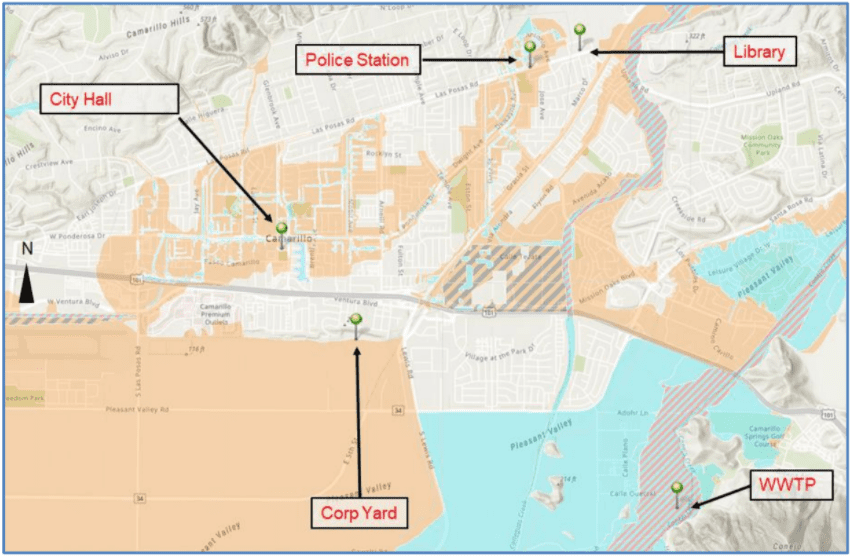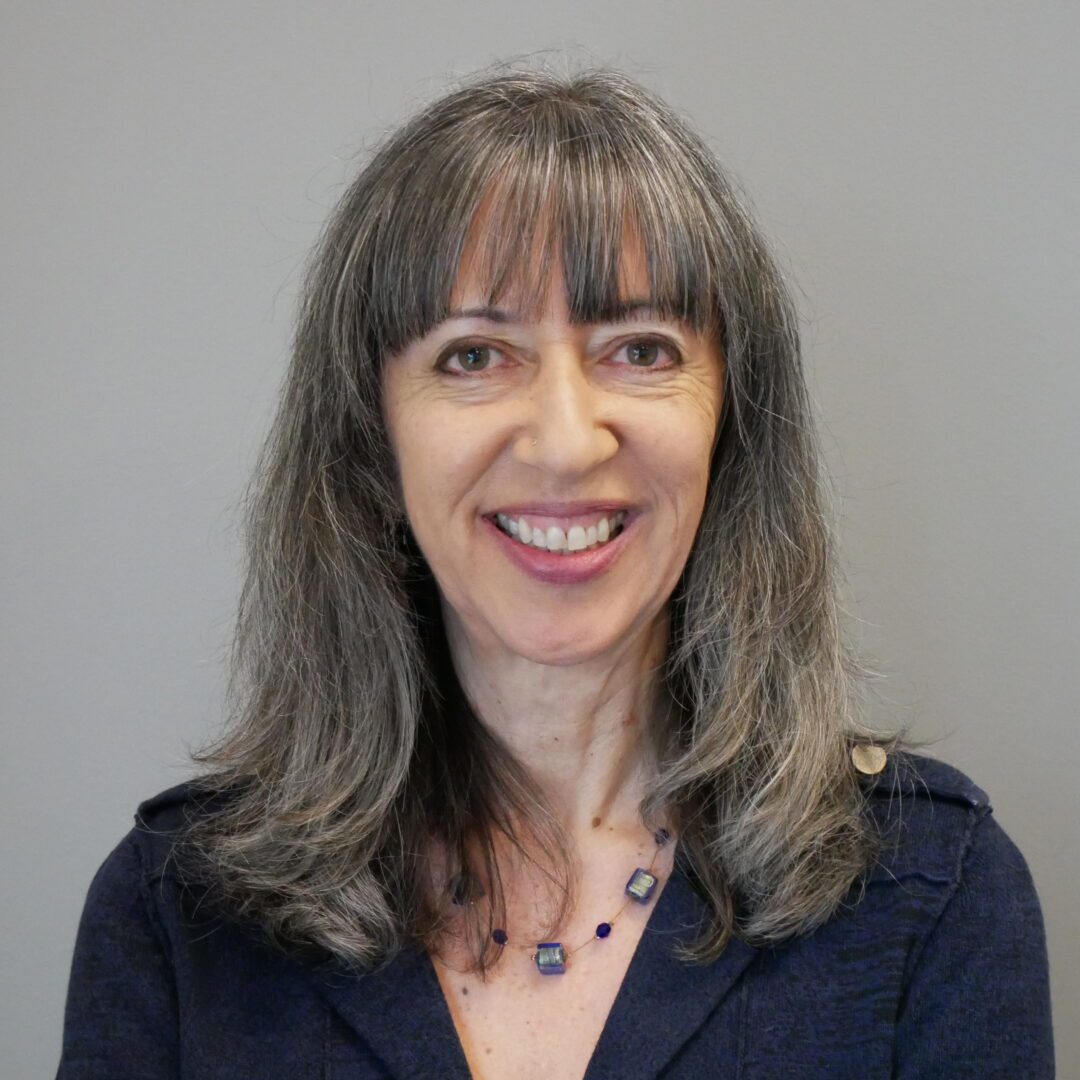
Press release: City of Camarillo, California approves moving forward with Hybrid Solar Microgrids at five critical community facilities
The Clean Coalition and TRC Companies conducted a feasibility study for the City that recommended Hybrid Solar Microgrids for optimal economic, environmental, and resilience benefits
30 October 2020
NEWS RELEASE: City of Camarillo, California approves moving forward with Hybrid Solar Microgrids at five critical community facilities
The Clean Coalition and TRC Companies conducted a feasibility study for the City that recommended Hybrid Solar Microgrids for optimal economic, environmental, and resilience benefits
CAMARILLO, CA – On October 28, the Camarillo City Council unanimously approved moving forward with the design of Hybrid Microgrids at five City facilities: City Hall, the Corporation Yard, Camarillo Public Library, Police Station, and Wastewater Treatment Plant. The microgrid at the Camarillo Public Library will be designed with solar+storage only, while the other four sites will employ a hybrid design of solar+storage+diesel.

In February 2020, the City engaged the Clean Coalition, a Santa Barbara–based nonprofit, and TRC Companies to conduct a solar+storage microgrid feasibility study for the aforementioned sites.
The study, which assessed the feasibility of standalone solar+storage for each of the five sites compared to using only diesel generators, found that the most feasible and economic solution would be hybrid systems that incorporate solar, storage, and diesel generation at four of the five sites.
The solar+storage systems recommended in the study will keep the sites online during short-duration outages, with diesel generators reserved for use as backup only when needed during extended outages. Additionally, the microgrids will reduce the cumulative carbon footprint of the five sites by approximately 88 percent.
Solar+storage only was recommended for the Camarillo Public Library, which does not need to be kept online during an extended power outage but can benefit from solar+storage backup, as available, and utility bill savings.
Over the anticipated 30-year life of the projects, the microgrids are designed to achieve zero net energy and yield utility bill savings through reduced demand and energy charges at all five facilities. Savings will depend on which financing option the City chooses – a City-owned model, or a power purchase agreement (PPA), in which a third party would own and operate the systems.
In the face of increasingly severe wildfire seasons and the California utilities’ Public Safety Power Shutoffs (PSPS), the City of Camarillo is joining many other municipalities in seeking the economic, environmental, and resilience benefits of solar-driven microgrids. These benefits were key in the decision to assess the feasibility of solar+storage microgrids, rather than relying solely on diesel generators for emergency backup power – as the City had originally planned for City Hall and the Corporation Yard.
“The study made it clear that Hybrid Solar Microgrids are not only feasible but also economically viable,” said Greg Ramirez, Camarillo City Manager. “Implementing these cost-effective hybrid solutions represents a big step toward meeting both City and regional sustainability goals.”
“By voting to move forward with these hybrid systems, the City of Camarillo has demonstrated significant leadership,” said Frank Wasko, Managing Director of the Clean Coalition. “With this move, the City joins numerous public agencies and private entities that are realizing the unparalleled economic, environmental, and resilience benefits of renewables-driven microgrids.”
Furthermore, the Camarillo City Council approved pursuing grant funding for the project, including an opportunity from the Federal Emergency Management Agency (FEMA), which recently announced a nationwide grant of up to $50 million per applicant for projects such as microgrids and generators that mitigate risks from natural disasters.
The Solar & Storage Microgrid Feasibility Study is available on the City’s website.
About the Clean Coalition
The Clean Coalition is a nonprofit organization whose mission is to accelerate the transition to renewable energy and a modern grid through technical, policy, and project development expertise. The Clean Coalition drives policy innovation to remove barriers to procurement and interconnection of distributed energy resources (DER) – such as local renewables, energy storage, advanced inverters, and demand response – and we establish market mechanisms that realize the full potential of integrating these solutions. In addition to being active in numerous proceedings before state and federal agencies throughout the United States, the Clean Coalition collaborates with utilities, community choice aggregation agencies, municipalities, and other entities to create near-term deployment opportunities that prove the technical, economic, and resilience viability of local renewables and other DER.
Contact:
Rosana Francescato
Communications Director
Clean Coalition
rosana@clean-coalition.org
650-308-9046

